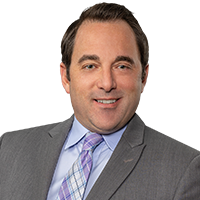
The Pitfalls Affecting Admission Of Expert Bad Faith Testimony Under Daubert
November 28, 2016
This article originally appeared in Claims Management, a publication of the Claims & Litigation Management Alliance (CLM). Legal opinions may vary when based on subtle factual differences. All rights reserved.
Two recent federal cases highlight the challenges practitioners face in presenting expert claims handling testimony in bad faith litigation under the Daubert standard.[1] In the first case, a court excluded such expert testimony on behalf of the insurer. In the second, the same court excluded and restricted such testimony on behalf of the insured.
In the first case, Lopez v. Allstate Fire and Casualty Insurance Company,[2] the plaintiffs sued Allstate for bad faith, claiming Allstate’s unreasonable failure to settle claims made against Allstate’s insured resulted in an excess judgment.
Allstate sought expert testimony from James Kadyk, an attorney with 36 years of experience in casualty insurance law. Kadyk opined that Allstate properly handled the claims. The plaintiffs moved to exclude Kadyk’s opinions.
The court granted the plaintiffs’ motion on three grounds. First, Kadyk was not qualified to render opinions about claims handling because he had never represented a party in a bad faith case and he had never worked for an insurance company. Kadyk’s experience was “insufficient to render him qualified to provide expert testimony as to the proper claims handling processes for insurers.”
[1] Under Daubert v. Merrell Down Pharmaceuticals, Inc., 509 U.S. 579 (1993), the trial court serves as a gatekeeper to exclude unreliable expert testimony.
[2] 2015 WL 5584898 (S.D. Fla. Sept. 23, 2015).
Second, the court found that Kadyk’s opinions were not based on any reliable methodology. A reliable methodology requires the witness to explain how his experience leads to the conclusion reached, why that experience is a sufficient basis of the opinion and how that experience is reliably applied to the facts of the case. In light of the court’s determination that he was unqualified, Kadyk could not do so.
Third, the court found that Kadyk’s opinions did not help the jury because Mr. Kadyk simply applied the facts of the case to Florida law, which is the jury’s role.
Less than a year later, in Arroyo v. Infinity Indemnity Insurance Co.,[1] the same court excluded and restricted the insured’s expert testimony in another third-party bad faith case. In Arroyo, the defendant insurer moved to exclude claims handling and damages testimony from plaintiff’s experts.
The plaintiff’s first expert was attorney Lewis Jack, who had 40 years of insurance law experience. The Arroyo court found Jack was not qualified because he lacked claims adjusting experience.
The court also did not admit Jack’s opinions on the credibility of witnesses and on damages. The opinions were forbidden because an expert cannot asses a witness’ credibility. Jack’s opinions on damages were unreliable because they were not based upon the facts in the case. Thus, the court excluded Jack’s opinions.
[1] 2016 WL 4506991 (S.D. Fla. Aug. 29, 2016).
Plaintiff’s second expert was James Schratz, an attorney and a former licensed insurance adjuster with minimal Florida claims handling experience. The court permitted Schratz’s opinions with restrictions. The court observed that Schratz was not addressing the insurer’s compliance with Florida law, and that he was qualified to render opinions on national industry standards of claims handling and investigation processes and whether the insurer reasonably applied them in the case. The defendant could cross-examine him or offer contrary evidence.
The court also permitted Schratz’s testimony about the effect of the insurer’s omission of a reservation of rights as long as Schratz did not proffer the law concerning the issuance of a reservation of rights. The court found that Schratz’s opinions were sufficiently reliable based upon his 30 years of experience in insurance claims handling and his review of substantial portions of the record in the case, and that his opinions would assist a jury. However, the court excluded Schratz’s opinions that touched upon legal conclusions and those regarding the states of mind of other parties in the litigation.
These cases illustrate some of the issues attending the use of claims handling experts under Daubert. Practitioners should carefully consider Daubert’s limitations to such testimony. Courts will exclude or restrict expert claims handling testimony that does not meet the Daubert criteria.



